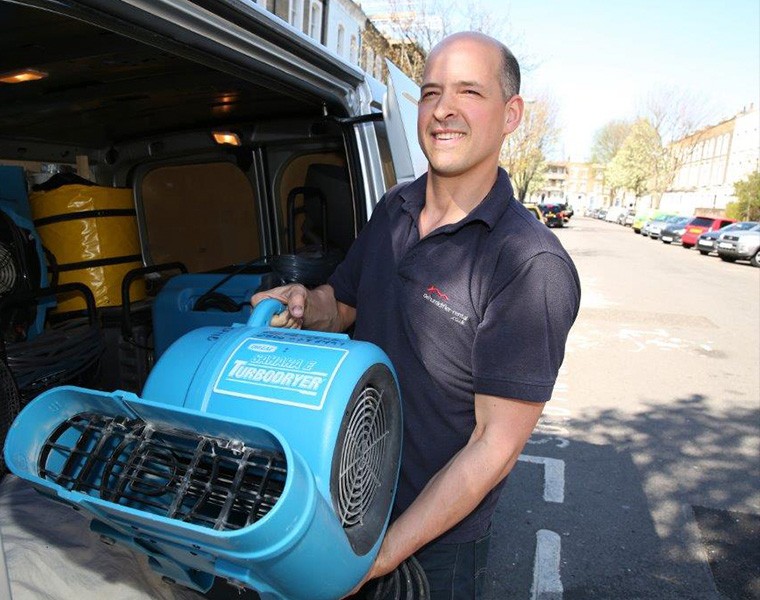What dehumidifier do I need?
A question we are commonly asked is ‘do I need a commercial or domestic dehumidifier’.
Sometimes the titles given to dehumidifiers can be confusing, including those on our own website! It can give the impression that commercial / industrial dehumidifiers are only for commercially used spaces, however for most residential this wouldn’t be correct.
Two of the main factors to consider in selecting a dehumidifier are a) the overall room size and b) the type of materials being dried.
Room size:
Roughly speaking, if the room size is larger than a typical single bedroom, hallway or bathroom, then an industrial dehumidifier would be appropriate. A ‘commercial’ dehumidifier would be needed in order to turn over the air in the space at an appropriate rate. Our industrial dehumidifiers tend to have an air turnover rate of at least 300 cubic metres of air per hour, which would be needed for most rooms in a residential property.
Commercial spaces such as shops, offices and warehouse spaces are typically larger, with a greater volume of air than residential spaces, so industrial dehumidifiers would be appropriate.
Application:
For general humidity control in residential properties, a domestic dehumidifier may be sufficient. Even in a larger room such as a double bedroom or living room
Structural drying work after water damage from a flood, burst pipe or penetrating dampness would typically require a commercial dehumidifier with a stronger air turnover rate.
Drying with fans:
In addition to choosing an appropriate dehumidifier, it’s most often the case that additional air movement from an industrial fan, would help to circulate dry air and speed up evaporation. The use of fans together with dehumidifiers will help to distribute the dry air to ensure all affected areas benefit form the equipment.
Refrigerant or Desiccant dehumidifier?
The vast majority or customers happily use the refrigerant dehumidifiers as they are very versatile and effective in a broad range of situations.
There are two main types of dehumidifier technology; refrigerant and desiccant with pros and cons for each machine, with differences in the extraction rates, optimum operating temperatures, running costs, size and noise levels.
Generally the advantages of refrigerant dehumidifers are their greater extraction rate at the early stage of flood damage when there is much water, and they are also easier to set up and move around. Desiccant dehumidifiers can take longer to setup and be less mobile, and they are more expensive to run, however they have very strong drying power in cold conditions compared with the refrigerant machines.
For more information on rental options and selecting the right equipment for your needs, contact us today. Please contact us on 020 7760 7660 or help@dehumidifier-rental.co.uk
 020 7760 7660
020 7760 7660